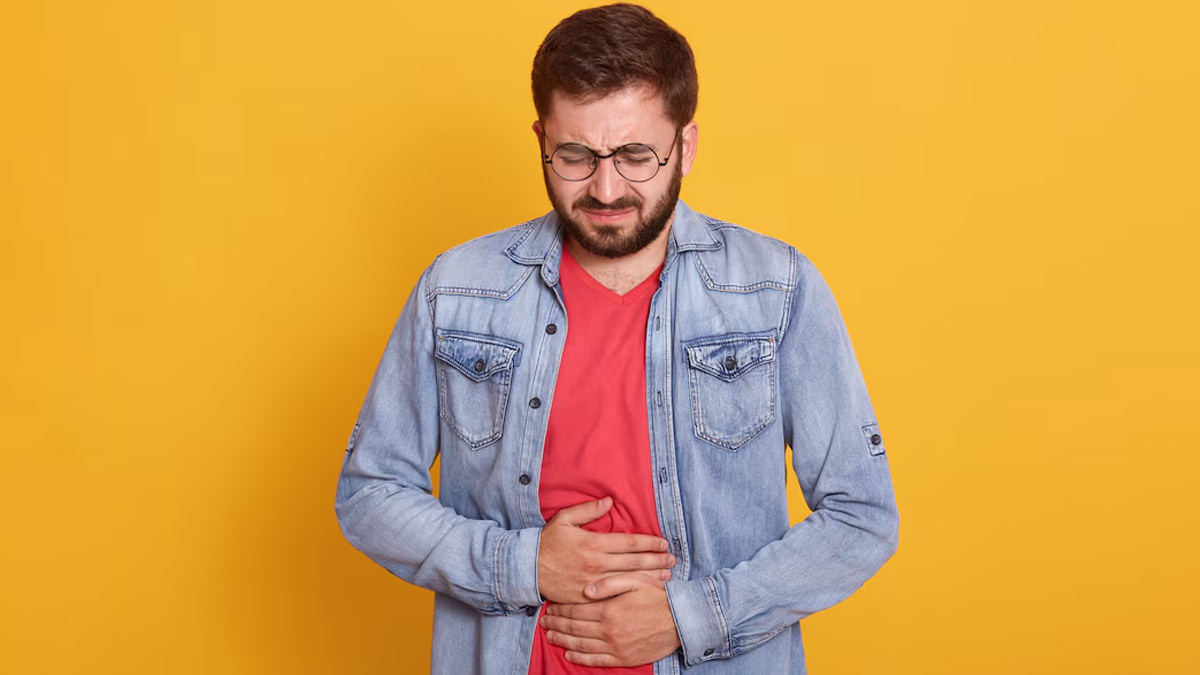
Bloating is a digestive problem experienced by people around the world. While it is mostly harmless, it can cause a lot of distress. In certain cases, it may even indicate an underlying health problem that needs immediate attention.
Table of Content:-
Often, diet is the primary cause of bloating. For instance, drinking too many carbonated beverages, eating beans, or having dairy products when you're intolerant of lactose can all result in a bloated stomach. But sometimes, your bloating may have nothing to do with your diet or the foods you eat. It could be a medical condition, stress, or even certain medications. Read on to learn more.
Also Read: Do You Feel Bloated All The Time? Find Relief With These Home Remedies for Bloating
Bloating May Have Nothing To Do With Food

In an interaction with the OnlyMyHealth team, Dr Mangesh Borkar, Consultant-Medical Gastroenterologist, Manipal Hospital, Kharadi, Pune, says, “Bloating can happen for a variety of reasons, and it may be unrelated to diet.”
According to him, factors such as hormonal changes during menstruation or pregnancy, digestive diseases including Irritable Bowel Syndrome (IBS) and Gastroesophageal Reflux Disease (GERD), stress, and certain medications that cause fluid retention can lead to bloating. Additionally, stomach-related medical procedures can contribute to the same.
Medical Conditions That Can Cause Bloating
Chronic bloating has been related to some medical issues, says Dr Borkar. These include:
- Pancreatic circumstances like pancreatitis or pancreatic cancer
- Ascites caused by liver disease or cancer
- Inflammatory Bowel Diseases (IBDs) like Crohn's disease and ulcerative colitis
- Ovarian cancer, which can be accompanied by pelvic pain and urinary symptoms
As per the doctor, these underlying disorders may be the cause of persistent bloating, which calls for a medical evaluation to make the right diagnosis and treat the underlying condition.
In addition, small intestinal bacterial overgrowth, or SIBO, may also be one of the underlying reasons behind bloating, accompanied by other issues such as frequent diarrhoea and nutrient malabsorption, according to Medical News Today. SIBO is a condition that occurs when there is an uncontrollable increase in the number of bacteria in the small intestine, especially those that aren't commonly found in the digestive tract.
Menstruation And Bloating

According to the Office on Women's Health, up to 85% of women experience Premenstrual Syndrome (PMS) symptoms, including bloating.
Period bloating is extremely common and often occurs due to hormonal fluctuations associated with the sex hormones oestrogen and progesterone. Just before the menstrual period, progesterone levels start to fall, causing the uterus to shed its lining, which is what causes the period, and elevated oestrogen levels can lead to water retention, which can in turn cause bloating.
A study published in Obstetrics and Gynecology International even found that most healthy women experience the worst fluid retention and associated bloating on the first day of menstruation.
Also Read: 5 Scientifically Proven Ways To Reduce Bloating Period Bloating
When Should You Consult A Doctor?

“A person should consult a doctor if they experience persistent bloating despite dietary changes, especially if accompanied by severe abdominal pain, fever, vomiting, or unexplained weight loss,” says Dr Borkar.
Other concerning symptoms include:
- Blood in stools
- Difficulty swallowing
- Changes in bowel habits
“Seeking medical attention ensures proper evaluation and management, particularly if underlying medical conditions are suspected to be the cause of bloating,” he adds.
How To Relieve Bloating
Some of the ways to relieve bloating include:
- Avoiding items that cause gas and eating smaller, more frequent meals
- Regular exercise
- Adequate hydration
- Reduce stress through stress management practices like deep breathing exercises or meditation
- Over-The-Counter medications such as simethicone or antacids
- Address underlying medical concerns that may be causing bloating
Conclusion
Bloating is a distressing symptom that can indicate various underlying issues. While diet is one of the primary causes, there are other factors, such as menstruation, pregnancy, stress, and chronic medical conditions, such as GERD, IBS, IBD, and SIBO. Speaking with a doctor can help you diagnose the issues and receive proper treatment. Certain home remedies may also help, but it is best to consult a healthcare professional to expedite the recovery process.
Also watch this video
How we keep this article up to date:
We work with experts and keep a close eye on the latest in health and wellness. Whenever there is a new research or helpful information, we update our articles with accurate and useful advice.
Current Version